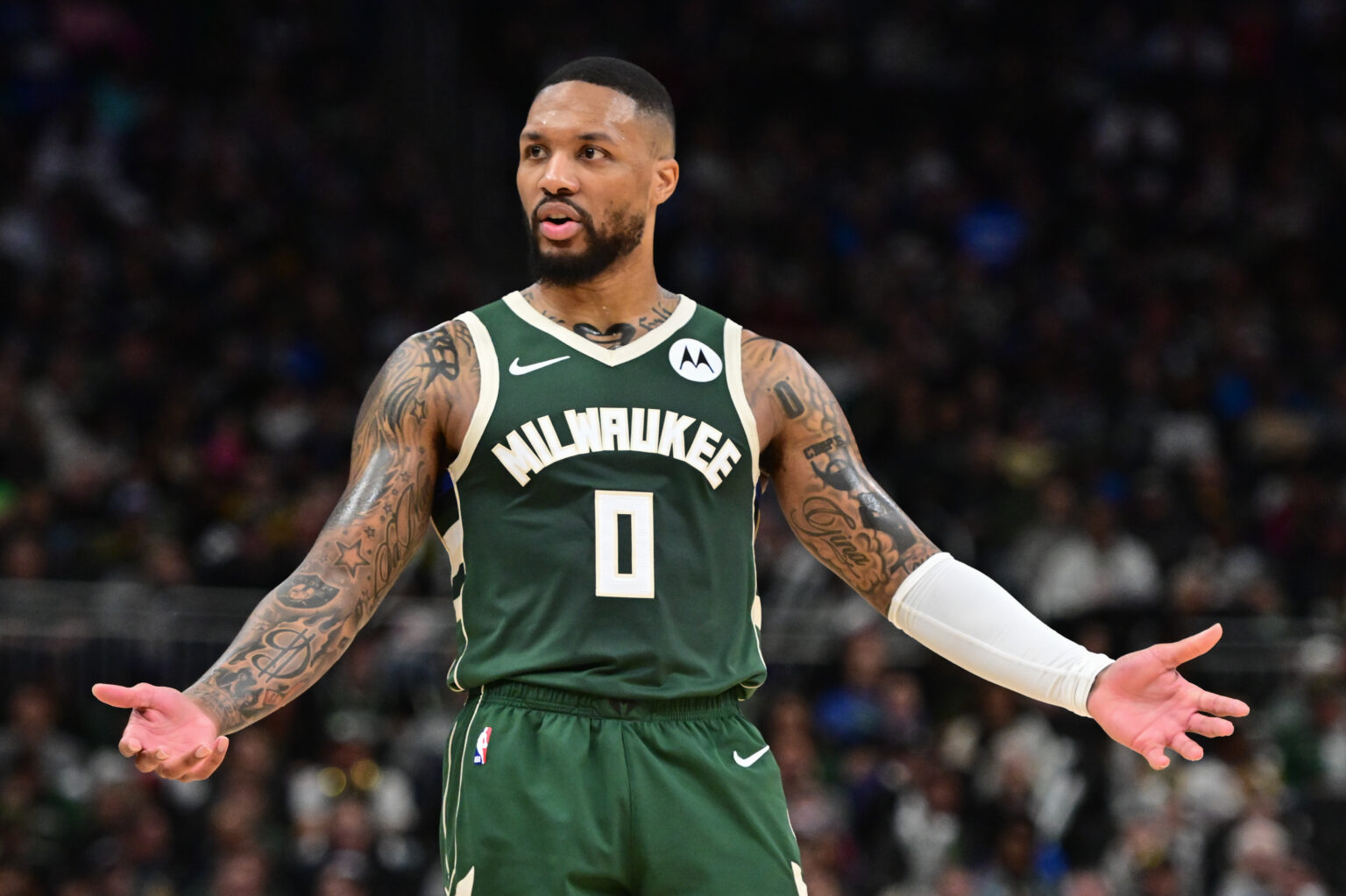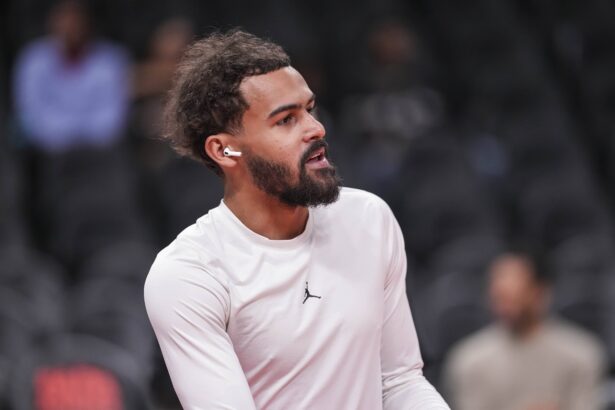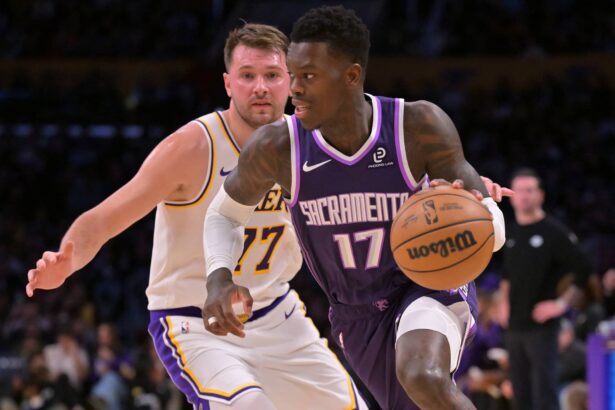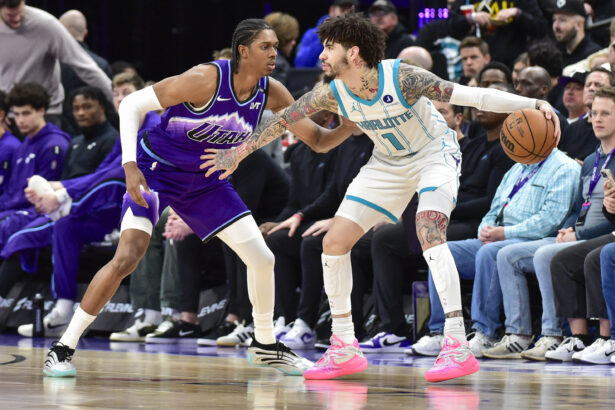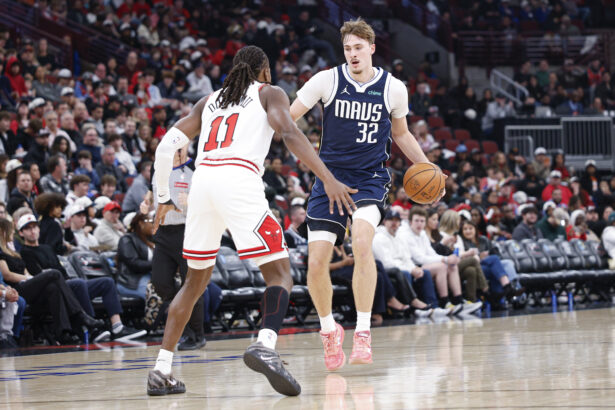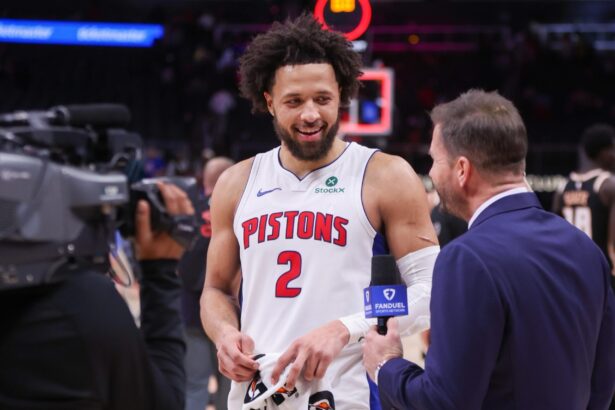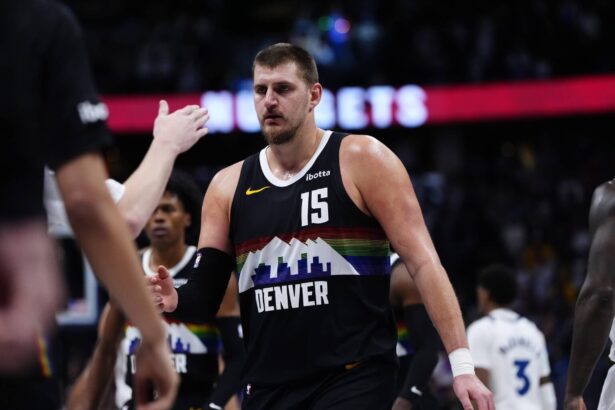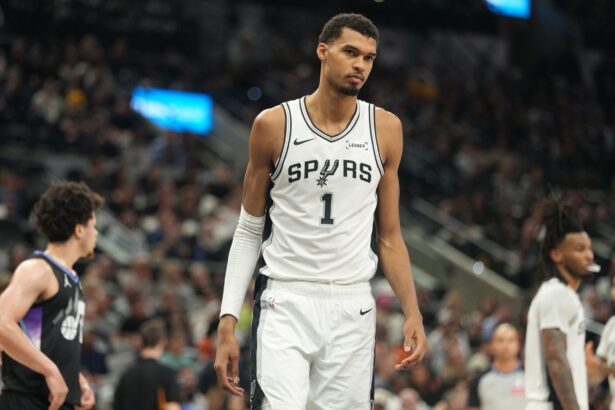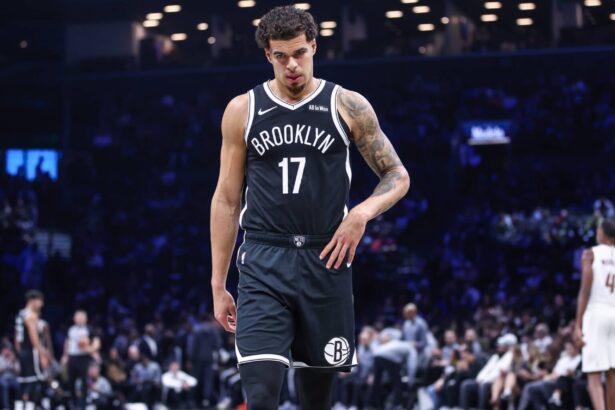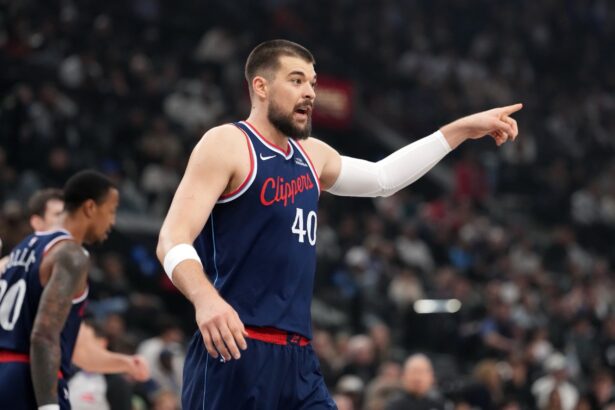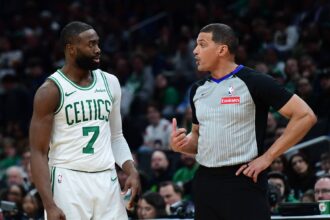Gary Sheffield Jr., a prominent YouTuber, didn’t mince words when he commented on Damian Lillard’s recent confession about feeling lonely in Milwaukee. Lillard, who recently transitioned from the Portland Trail Blazers to the Milwaukee Bucks, opened up about his struggles with loneliness in his new city, expressing how much he misses the close-knit support network he had in Portland.
“Could you guys imagine having to make $400,000 a day for a maximum of 48 minutes of work and then having to drive to your 30,000 square foot home in your Lamborghini to play video games until you’re ready for bed?”
“Hang in there, brother.”
https://twitter.com/GarysheffieldJr/status/1762943912711270811
In response, Sheffield Jr. offered a scathing critique of Lillard’s sentiments, highlighting the staggering privilege and financial prosperity that come with being an NBA superstar.
Sheffield Jr. pointed out the stark juxtaposition between Lillard’s complaints of loneliness and the astronomical wealth and lifestyle that accompany his profession. He emphasized the exorbitant sums of money Lillard earns, breaking it down to a mind-boggling $400,000 per day for a maximum of 48 minutes of work on the basketball court.
Sheffield Jr. painted a vivid picture of the luxurious trappings of Lillard’s life, from his expansive 30,000-square-foot mansion to his fleet of luxury cars, punctuated by evenings spent playing video games until bedtime. With such lavish accommodations and ample leisure time at his disposal, Sheffield Jr. implied that Lillard’s lamentations about loneliness ring hollow in the face of his immense privilege.
In his commentary, Sheffield Jr. adopted a tone of sarcasm and incredulity, urging Lillard to “hang in there” with a biting sense of irony. His words serve as a stark reminder of the vast disparities between the lives of NBA stars like Lillard and the everyday struggles faced by ordinary people.
While Lillard’s admission of loneliness may elicit sympathy from some quarters, Sheffield Jr.’s pointed critique casts it in a different light, prompting reflection on the privileges and responsibilities that come with fame and fortune.
Moreover, Lillard’s personal struggles extend beyond loneliness. He recently revealed that he is going through a divorce, adding another layer of complexity to his life off the court. Despite these challenges, Lillard has also faced difficulties on the basketball court since joining the Bucks. While still posting respectable statistics, his impact hasn’t been as pronounced as many had anticipated.
Lillard is averaging 24.5 points, 4.4 rebounds, and 6.8 assists per game for the Bucks, but his performance hasn’t lived up to his reputation as one of the NBA’s elite players. The Bucks themselves underwent a coaching change, further adding to the team’s instability. However, recent victories following a rough start under new coach Doc Rivers offer a glimmer of hope for both Lillard and the Bucks as they navigate the remainder of the season.
NBA Players’ Lives Are Like Two Sides Of A Coin
The lives of NBA players are often likened to two sides of a coin, each representing a different aspect of their reality. On one side, there’s the undeniable wealth and privilege that comes with being a professional athlete in one of the world’s most lucrative sports leagues.
NBA players earn staggering salaries, with many raking in millions of dollars each year through contracts, endorsements, and other sources of income. They enjoy access to luxurious amenities, travel in style, and live in opulent homes that most people can only dream of.
However, it’s important to recognize that there’s another side to the coin – the human side. Despite their wealth and fame, NBA players are not immune to the trials and tribulations of everyday life. They face the same challenges, struggles, and hardships as anyone else. When you strip away the money and the fame, they are still human beings with emotions, relationships, and personal battles to contend with.
For NBA players, the pressure to perform at the highest level, the demands of grueling training regimens, and the constant scrutiny from fans and media can take a toll on their mental and emotional well-being. They may grapple with issues such as loneliness, stress, anxiety, and depression, just like anyone else.
Moreover, they often have to deal with the pressures of balancing their professional careers with their personal lives, including maintaining relationships with family and friends and navigating the ups and downs of romantic partnerships.
In light of this, it’s essential to approach the lives of NBA players with empathy and understanding. While they may enjoy considerable wealth and privilege, they are not exempt from the challenges of being human.
Rather than dismissing their struggles because of their financial status, we should acknowledge that they, too, experience hardships and deserve compassion and support. Ultimately, NBA players’ lives are a complex tapestry of privilege and humanity, each side contributing to the rich and multifaceted experiences that define their existence.
Thank you for being a valued reader of Fadeaway World. If you liked this article, please consider following us on Google News. We really appreciate your support.

